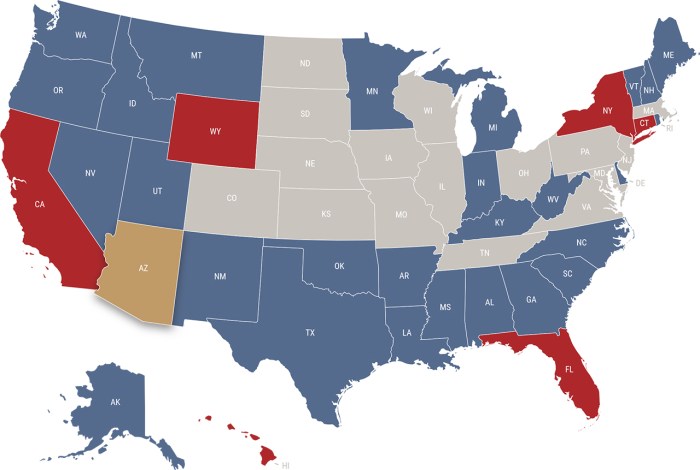Navigating the complexities of real estate licensing can be daunting, but understanding the process of New Hampshire real estate license reciprocity can simplify the path to obtaining a license in the Granite State. This comprehensive guide delves into the specific requirements, application process, advantages, and disadvantages associated with reciprocity, providing valuable insights for aspiring real estate professionals.
Reciprocity agreements between states offer licensed real estate agents the opportunity to practice in multiple jurisdictions, expanding their career horizons and enhancing their professional mobility. New Hampshire’s reciprocity program provides a streamlined pathway for out-of-state agents to obtain a license, leveraging their existing experience and qualifications.
New Hampshire Real Estate License Reciprocity

New Hampshire offers reciprocity to real estate licensees from other states who meet certain requirements. This allows qualified individuals to obtain a New Hampshire real estate license without having to complete the state’s pre-licensing education or pass the state exam.
New Hampshire Real Estate License Reciprocity Requirements
To be eligible for reciprocity, applicants must:
- Hold an active real estate license in good standing in another state
- Have been licensed for at least two years in the other state
- Have completed at least 60 hours of pre-licensing education in the other state
- Have passed the real estate license exam in the other state
Process for Applying for Reciprocity
To apply for reciprocity, applicants must submit the following to the New Hampshire Real Estate Commission:
- Completed reciprocity application
- Copy of active real estate license
- Proof of at least two years of experience
- Proof of pre-licensing education
- Proof of passing the real estate license exam
The application fee is $100. The processing time is typically 4-6 weeks.
Advantages and Disadvantages of Reciprocity
Advantages:
- Increased career opportunities and mobility
- No need to complete pre-licensing education or pass the state exam
Disadvantages:
- Additional requirements, such as continuing education
- Restrictions on practicing in certain areas
Alternative Pathways to Obtaining a New Hampshire Real Estate License, New hampshire real estate license reciprocity
Individuals who do not qualify for reciprocity can obtain a New Hampshire real estate license by:
- Completing a 60-hour pre-licensing course
- Passing the New Hampshire real estate license exam
Resources and Support for Reciprocity Applicants
The following resources are available to individuals seeking to obtain a real estate license in New Hampshire through reciprocity:
- New Hampshire Real Estate Commission: https://www.nhrea.org/
- New Hampshire Association of Realtors: https://www.nhar.com/
- National Association of Realtors: https://www.nar.realtor/
FAQ: New Hampshire Real Estate License Reciprocity
What are the eligibility criteria for New Hampshire real estate license reciprocity?
To be eligible for reciprocity, applicants must hold an active real estate license in good standing in another state, meet education and experience requirements, and pass a background check.
What is the application process for New Hampshire real estate license reciprocity?
The application process involves submitting an application, providing proof of licensure, education, and experience, paying fees, and passing a background check.
What are the advantages of obtaining a New Hampshire real estate license through reciprocity?
Reciprocity offers increased career opportunities, enhanced mobility, and the ability to practice in multiple jurisdictions.
What are the potential drawbacks of reciprocity?
Reciprocity may involve additional requirements, such as completing continuing education courses or passing an exam, and may not be available for all states.

